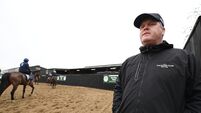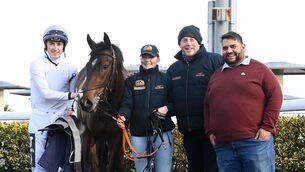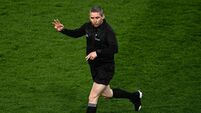Nolan taking the hurdles in his stride
WEXFORD trainer Paul Nolan is a disarmingly honest character, one for whom the truth is the truth and there’s no two ways about it. He’s the first to concede that when he got into the game he knew little or nothing about horses, but it is left unsaid that he is obviously a very fast learner and, with two Galway Hurdles under his belt and a second favourite for the Champion Hurdle in his yard, the evidence could not be more concrete.
“I have my licence for nine years now,” he says, “but the reason I got into the business in the first place was because I was a failed farmer. We’d been doing dry stock, cattle and sheep and tillage with a bit of barley and wheat and stuff, but there was just no outlook in that business.









